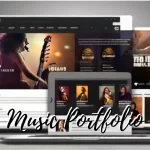Navigating the World of Music Education: Tips for Aspiring Musicians
Music, a universal language that transcends boundaries, has the power to inspire, communicate, and evoke emotions. For aspiring musicians, the journey through music education is a pivotal and enriching experience. In this blog, we will explore essential tips and guidance to help aspiring musicians navigate the intricate world of music education, from choosing the right music school to embracing technology and gaining real-world experience.
The Foundation: Choosing the Right Music School
Embarking on a journey in music education begins with selecting the right institution. Researching and choosing accredited music schools play a crucial role in shaping your musical career. Accredited institutions ensure a standardized level of education, providing a solid foundation for aspiring musicians.
Considerations when choosing a music program extend beyond accreditation. Faculty expertise, available facilities, and the curriculum offered should align with your musical goals. It’s essential to evaluate the opportunities for practical experience, such as ensemble performances and studio recordings, as they contribute significantly to your overall development as a musician.
In addition to traditional brick-and-mortar institutions, aspiring musicians have alternative paths to consider. Online courses, workshops, and private lessons offer flexibility and personalized learning experiences. Exploring these options can be valuable, especially for those who may face geographical constraints or have unique scheduling needs.
Mastering the Basics: Instrument and Genre Selection
One of the defining aspects of a musician’s identity is their choice of instrument. Whether it’s a classical instrument like the piano or violin, a contemporary instrument like the guitar or drums, or even electronic instruments, the choice is deeply personal. Aspiring musicians should take the time to identify their primary instrument and commit to mastering it.
Similarly, exploring various music genres and styles is crucial for a well-rounded musical education. While specialization is essential, versatility opens doors to diverse opportunities. Understanding the fundamentals of different genres equips musicians to adapt and collaborate across musical landscapes.
Building a Strong Musical Foundation: Theory and Ear Training
A solid understanding of music theory is fundamental for musicians. Music theory provides a framework for composition, improvisation, and effective communication with other musicians. Aspiring musicians should invest time in studying topics such as scales, chords, harmony, and rhythm.
Ear training is equally important, as it sharpens a musician’s ability to recognize and reproduce musical elements by ear. Engaging in exercises that focus on pitch, intervals, and rhythm enhances your musical perception. Integrating both theory and ear training into daily practice routines creates a robust foundation that will serve you well throughout your musical journey.
Balancing Academics and Artistry
Navigating the academic requirements of a music program requires careful planning and time management. Aspiring musicians often find themselves juggling music theory classes, ensemble rehearsals, and general education courses. Striking a balance between academic responsibilities and artistic pursuits is essential for a fulfilling music education.
Effective time management is a key skill to cultivate. Creating a schedule that allocates dedicated time for practice, classes, and personal pursuits ensures that you can meet both academic and artistic goals. Remember, the pursuit of music is not just about technical proficiency but also about expressing creativity and passion.
Networking and Collaboration in the Music Community
Building a professional network within the music companies is crucial for future success. Networking opportunities abound in the form of music-related events, workshops, and conferences. Actively participating in these events not only expands your circle but also exposes you to different perspectives and styles.
Collaborating with fellow musicians is a valuable aspect of music education. Collaborative projects foster a sense of community, encourage creativity, and provide an opportunity to learn from others. Whether it’s a jam session, a recording project, or a live performance, collaboration enhances your musical journey and broadens your skill set.
Embracing Technology: Tools for Modern Musicians
In the age of technology, musicians have a wealth of tools at their disposal. Leveraging technology for practice, composition, and collaboration can significantly enhance the learning experience. Online resources, such as tutorials from websites for musicians, virtual instruments, and digital sheet music, provide new avenues for learning and creativity.
Digital platforms have also revolutionized the music industry. Aspiring musicians can use social media to showcase their work, connect with a global audience, and collaborate with artists from different parts of the world. Understanding and embracing these technological tools position musicians for success in the modern music landscape.
Overcoming Challenges and Staying Motivated
The journey through music education is not without its challenges. Common hurdles include technical difficulties, creative blocks, and the pressure to meet academic standards. It’s crucial to acknowledge these challenges and develop strategies to overcome them.
Staying motivated during difficult times is an ongoing process. Setting realistic goals, seeking mentorship from experienced musicians, and cultivating a resilient mindset contribute to maintaining motivation. Remember that challenges are part of the learning process, and overcoming them leads to growth and improvement.
Real-World Experience: Internships, Gigs, and Performance Opportunities
Gaining practical experience is integral to a holistic music education. Seek internships, whether in recording studios, music production houses, or music education programs, to apply your skills in real-world scenarios. Performance opportunities, such as gigs and concerts, offer a platform to showcase your talent and build a portfolio.
Building a portfolio is essential for future career prospects. Documenting your performances, recordings, and collaborative projects creates a tangible record of your growth as a musician. Whether you aspire to be a performer, composer, or music educator, real-world experience strengthens your foundation and opens doors to diverse opportunities.
Conclusion
In conclusion, navigating the world of music education is a multifaceted journey that requires dedication, curiosity, and adaptability. Choosing the right music school, mastering the basics of your instrument and genre, building a strong foundation in theory and ear training, and balancing academics with artistry are crucial components.
Networking, collaboration, embracing technology, overcoming challenges, and gaining real-world experience further enrich the music education experience. As aspiring musicians embark on this journey, it’s important to approach it with passion, resilience, and a commitment to continuous learning. The transformative power of music education extends far beyond the classroom, shaping not only your skills but also your identity as a musician in the dynamic world of music.


